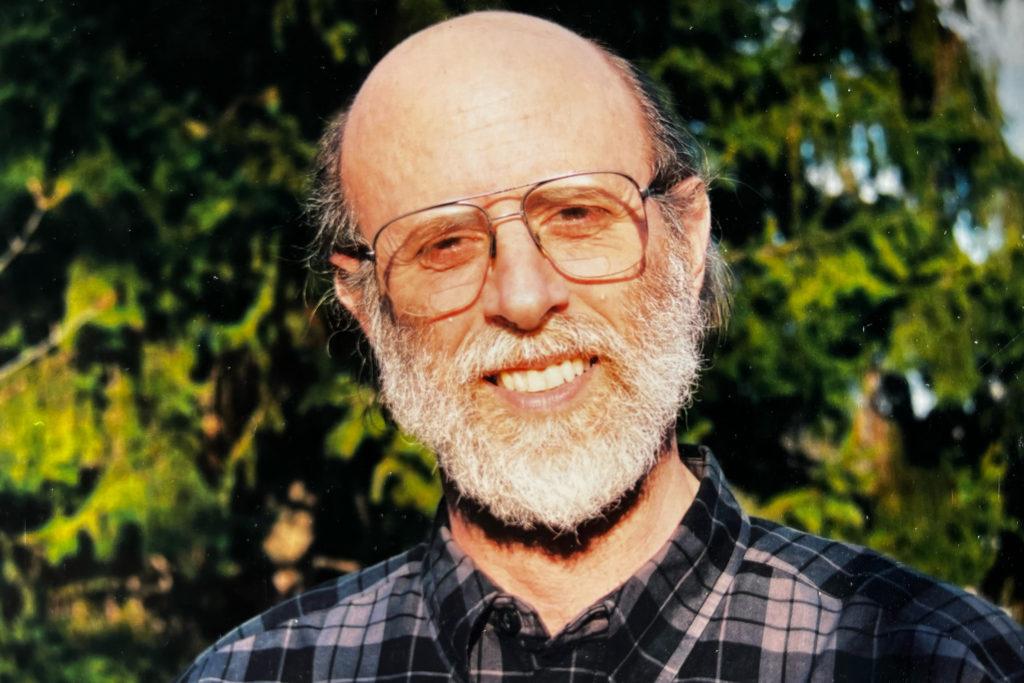Updated: Tuesday, May 23, 2023, at 4:03 p.m.
Alfred “Alf” Hiltebeitel, a professor emeritus of religion, history and human sciences, died in Cali, Colombia last month. He was 80.
Hiltebeitel served as the director of the human sciences program, chair of the religion department and the former chairman of the South India Term Abroad Program during his 49 years at GW. His colleagues and friends remember him as one of the world’s leading Hinduism experts and an accomplished-yet-humble scholar who brought his enthusiasm for religious studies to the GW.
Hiltebeitel was born in New York City April 10, 1942. He grew up in Weston, Connecticut and graduated from Haverford College with a major in religion in 1963. He earned his doctorate degree in history of religions from the University of Chicago in 1973.
Throughout his life, Hiltebeitel published more than a dozen books, edited at least three books, wrote dozens of academic articles on Hinduism and received numerous awards throughout his career, like his 1981 Guggenheim Fellowship, which is granted to individuals who have demonstrated “productive scholarship” in the arts.
Hiltebeitel came to GW’s religion department as a Hinduism specialist in 1968 with expertise in Hindu Sanskrit epics, specifically the Mahabharata – one of the two central Sanskrit epic poems on ancient India and the development of Hinduism. Hiltebeitel retired from the University in 2017 after 49 years of teaching.
Hiltebeitel was also a “dedicated” Red Sox and Celtics fan and enjoyed playing basketball with friends in the D.C. area Thursday nights from the early 1970s to the 2010s, according to The Washington Post.
Norman Girardot, a distinguished professor emeritus at Lehigh University and Hiltebeitel’s friend, said he and Hiltebeitel first met while they were graduate students studying religion at the University of Chicago. Girardot said they were both drawn to study religion in the 1960s when the study of non-Western religions was expanding in popularity in the United States. Girardot said Hiltebeitel was a “friend you could trust” and always willing to help in both academic and personal situations.
“We always kept in touch and we were always able to have a laugh together and to smile at the strangeness of the universe,” Girardot said.
Girardot said Hiltebeitel was “mischievous,” had an “incredible” sense of humor and liked to play jokes. He said he remembers hanging “made-up” and “bizarre” signs in the hallways as a joke with Hiltebeitel when they would attend academic conferences together.
“We were both sort of tricksters,” Girardot said. “We would do things that amused us but didn’t always amuse everyone else, but they were good for the soul.”
Faculty members who worked alongside Hiltebeitel described him as a devoted colleague who left an academic imprint on the field of religious studies and a personal impact on GW through his kindness.
Robert Eisen, a professor of religion, said Hiltebeitel was “widely regarded” as one of the leading scholars on Hinduism in the world. He said Hiltebeitel taught “thousands” of undergraduates during his tenure at GW and that it wasn’t unusual for Hiltebeitel to have published a book and five to seven journal articles in one year.
“I always felt like such an idiot having to write my comments assessing Alf’s performance and giving advice about where he could improve,” he said in an email. “On one occasion, I simply wrote, ‘My advice is that Alf should publish less next year so that he can give the rest of us a chance to catch up.’”
Eisen added that despite all of Hiltebeitel’s achievements, he never had “even a hint of arrogance” in his interactions with his colleagues. Eisen said he will be “sorely missed.”
“With all his accomplishments, Alf was a humble person who never made the rest of us in the Religion Department feel inadequate because we had accomplished so much less than he had,” Eisen said.
Mohammad Faghfoory, a professor of Islamic studies and the director of the Islamic studies graduate program, said Hiltebeitel was a supportive and kind colleague who treated every coworker with the same respect despite his seniority.
“He treated every single person, colleagues, staff, students, as equal, as a friend,” Faghfoory said.
Faghfoory said Hiltebeitel’s legacy lives on through his students, who he inspired to pursue careers in religion studies and scholarship, and his many pieces of scholarly writing on Hinduism.
“He was extremely humble,” Faghfoory said.
Irene Oh, chair of the department of religion and an associate professor, said Hiltebeitel would have “loved nothing more” than to see Hinduism studies “flourish” at GW. She said the department will miss him “tremendously.”
“GW was incredibly fortunate to have among its faculty Alf Hiltebeitel, who was a world-renowned scholar in the field of Hinduism,” Oh said in an email. “His enthusiasm, depth and breadth of knowledge, and prolific scholarship were unmatched.”
Seyyed Hossein Nasr, a professor of Islamic Studies, said the works Hiltebeital published on “certain strands” of Hinduism in Southern India and the students he trained to become religion scholars of religion reflect Hiltebeitel’s legacy. Nasr added that Hiltebeitel’s comments during religion department meetings were his fondest memories of the late professor.
“He didn’t say very much, but when he did say something, it was very assertive, and also important and positive,” Nasr said. “I think he had a very good role to play.”
Paul Duff, a professor of religion, said Hiltebeitel was a “brilliant” scholar but also a “warm and generous” person who cared about his students and his colleagues.
Hiltebeitel is survived by his wife Elena, sons Adam and Simon, his stepchildren Santiago, Harold, Enrique and Alejandro Eder and his grandchildren Lucille, Alice and Liam. He was buried at Iglesia Santa Filomena Cali in Cali, Colombia last month.
Editor’s Note: If any family members, friends or colleagues of Professor Alfred Hiltebeitel would like to provide further comment for the story, email The Hatchet at sne@gwhatchet.com.
This post was updated to reflect the following:
The Hatchet updated this post to include a comment from Seyyed Hossein Nasr.








